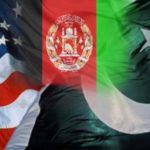The political settlement of a war whose single phase has lasted for almost two decades is not easy but surely not impossible. The last phase of Afghan conflict, which began with the ouster of Taliban regime by US-led coalition forces, is in its 18th year. The war is as complex as it is lengthy. Unlike other wars that are primarily fought for seizure of political power, the causes of Afghan war are complex and plenty, and so is the distance between the stances of Afghan parties to the war.
Afghan government is seeking the surrender and integration of the Taliban as an armed militant faction much like the Hekmatyar-led Hizb-e-Islami group. On the other hand, the Taliban are after taking over full control of the country in the future despite their assertions that they are not looking for monopoly on power. Nevertheless, their actions betoken otherwise. The distance between their positions and goals is so serious that both sides regard each other’s action as a conspiracy, even if it is a goodwill gesture.
Recently, there were media reports that the Taliban leadership has agreed to a temporary ceasefire to be declared concurrently with the signing of a peace deal with the United States, but the Taliban rejected the reports as baseless, saying their leadership was mulling over an alternative, which will supposedly be steps to reduce violence in the country. The reduction of violence may mean that the United States would promise the pullout of its troops from Afghanistan, and the Taliban would in turn decrease or stop attacks on foreign troops to give them a safe passage.
In addition to Americans, the Taliban also need to reach a ceasefire deal with Afghan government as the peace talks are set to begin among Afghans after the signing of US-Taliban agreement, which would require a climate of trust between the Afghan warring parties. Ceasefire is the best option to build the necessary trust. In case of cessation of violence, all Afghan political sides, including the Taliban and government, who are seeking to play a role in the mainstream politics will be able to exchange their views with each other in a peaceful environment. If violence continues, even Afghan-to-Afghans negotiations cannot stir hopes for peace and an end to the bloody war.













